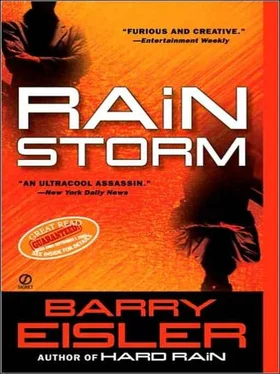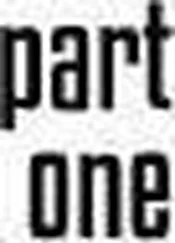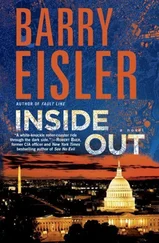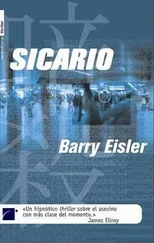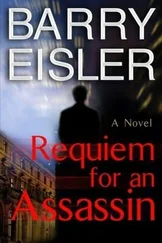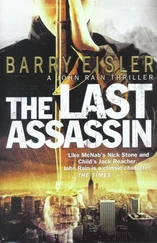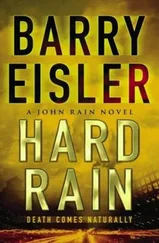I CALLED TATSU from a pay phone.
“ Nanda ?” I heard him say, in typically curt greeting. What is it?
“ Hisashiburi ,” I said, letting him hear my voice. It’s been a long time.
There was a pause. He said in Japanese, “I’ve been thinking of you.”
Coming from Tatsu this was practically sentimental. “You’re not getting mushy on me, are you?” I asked.
He laughed. “My daughters say I am.”
“Well, they would know.”
“I’m afraid they would. And you? Are you well?”
“Well enough. I need a favor.”
“Yes?”
“I’ll send you a message,” I said, referring to our electronic bulletin board.
There was a pause, then he said, “Will I be seeing you?”
“I hope so.”
Another pause. “ Jaa ,” he said. Well, then.
“Take care, old friend.”
“ Otagai ni na ,” he said. And you.
I uploaded the message at an Internet café. Then I made my way to Hong Kong International Airport. I caught a flight to Seoul, and from there to Narita International in Tokyo. And so, that very evening, I was mildly surprised at being back in Japan.
From Narita, I took a Narita Express train to Tokyo station, where I emerged to find my former city hunched up against characteristically rainy and cold late autumn weather. I stood under the portico roof at the station’s Marunouchi entrance and took in the scene. Waves of black umbrellas bobbed before me. Wet leaves were plastered to the pavement, ground in by the tires of oblivious cars and the soles of insensate pedestrians, by the weight of the entire, indifferent metropolis.
I watched for a long time. Then I turned and disappeared back into the station, borne down by a feeling of invisibility that was nothing like the one I had assiduously cultivated while living here.
I bought a cheap umbrella for an extortionate thousand yen and caught a Yamanote line train to Nishi-Nippori, where I checked into an undistinguished business hotel, one of dozens in this part of shitamachi , the scarred yet stalwart low city of old Edo. With the lights off, I could have been anywhere. And yet I was keenly aware that I was in Japan, I was in Tokyo.
I slept poorly, awaking to another gray and rainy day. I made my way to Sengoku, where I had lived for so many years before getting burned by Holtzer and having to leave for more anonymous climes.
Outside Sengoku station, I discovered that the features of an area I had remembered with some fondness had been erased. In their place had grown a McDonald’s on one corner, a Denny’s on the other. There was a chain drugstore; a chain convenience store; and other chains, all intended, no doubt, to offer increased choice and variety. A more pleasant, more efficient shopping experience. The city’s implacable engines of progress grinding on, I supposed, the homogenous expression of some increasingly senescent collective unconscious.
I reminded myself that all I owned of Sengoku were memories. The neighborhood itself was someone else’s to ruin.
I opened my umbrella, crossed the street, and walked until I passed my old apartment. And here, away from the station’s newly gaudy façade, I was surprised to find that all was almost exactly as I remembered: the gardens with their carefully tended plantings, the stone walls draped in patterns of gentle moss, the buildings of ancient wood and tile roofs, standing with dignity and determination beside their younger brick and metal cousins. Children’s bicycles were still clustered around doorways; umbrellas dripped as they always had from stands before small stores. The periphery had changed, I saw, but the core remained resolutely the same.
I laughed. What I had just seen at the station had been disappointing, but had also allowed me some compensatory sense of superiority. What I found afterward came as a relief, but carried with it a profound feeling of insignificance. Because I understood now that in Sengoku, life had just… gone on. The neighborhood was as untroubled by my loss as it had been unaware of my presence. When I had lived here, I realized, I had dared to think that perhaps I had belonged, that in some way my living here mattered. Now I could see that these thoughts had been, in their way, narcissistic. Certainly they had been mistaken.
I thought of Midori, of what she had once told me of mono no aware , what she had called the “sadness of being human,” and wished for a naked second that I could talk to her.
I took a final look around, trying to recollect the life I once had here. There was a feeling that lingered, certainly, something insubstantial that expressed its longing for corporeity in the form of a series of long sighs, but nothing I could really grasp. The interior of the town was just the same, yes, and yet, imbued with the unfair weight of my memories, it was now all hauntingly changed. I didn’t belong here anymore, and I felt like an apparition, something unnatural that was right to have left and foolish to have returned.
I walked back to the station and called Kanezaki from a pay phone.
“I was just going to upload something for you,” he said.
“Good. Where are you now?”
“Tokyo.”
“Where in Tokyo?”
There was a pause. He said, “Are you here?”
“Yes. Where are you now?”
“The embassy.”
“Good. Be outside Sengoku station in thirty minutes. Take the Mita line from Uchisaiwaicho.”
“I know how to get there.”
I smiled. “Walk up the west side of Hakusan-dori, toward Sugamo. When you get to Sugamo station, turn around and walk back. Repeat as necessary.”
“All right.”
“Come alone. Don’t break the rules.” There was no need to mention penalties.
I waited on Hakusan-dori northeast of Sengoku station, the umbrella held low to obscure my features, ready to bolt into the hive of alleys and streets behind me if something went wrong and Kanezaki violated the procedure I had established.
Twenty-five minutes later, he emerged onto the sidewalk and began walking toward me. He seemed to be alone. When he had pulled even with me, I called out to him. He looked over. I motioned that he should cross the street, and watched that no one performed the identical move behind him.
For the next half hour, I kept us moving on foot, by subway, and by taxi. Harry’s bug detector was silent. I ended the run at a place called Ben’s Café in Takadanobaba, in the relatively quiet northeast of the city.
We walked past the ivy-covered trellis and modest signage outside. Kanezaki took a deep breath as we walked through the door.
“Damn, it smells good in here,” he said.
I nodded. I find few smells as welcoming as the accumulated aroma of years of reverential coffee preparation.
“You know, if anyone ever catches on to your coffee shop and café habit,” he said, as we settled down at one of the small wooden tables, “they could probably track you.”
“Probably. Assuming they had the manpower to cover the thousand or so that I like in Tokyo.”
Actually, Ben’s had been one of my favorites, and I was glad to be back. The place has the feel of a college town coffeehouse, which in some ways it is, given the proximity of Waseda University and some smaller schools in the area. It’s got that laid-back air, the murmur of laughter and conversation always accompanying the house music at just the right, relaxing pitch; the eclectic regulars, in this case Japanese and foreign, neighborhood residents as well as sojourners from more distant corners of the city; the overflowing community bulletin board advertising support groups and theater and poetry readings. Cozy but not cramped; cool but not self-important; welcoming but not overly familiar, Ben’s would surely qualify as a Living Metropolitan Haven, if the government ever decided to grant such designations to Tokyo’s periodic sensory overload shelters.
Читать дальше
